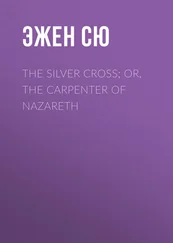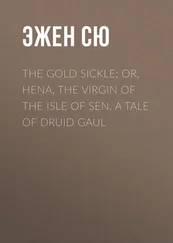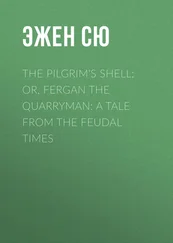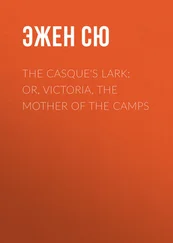Эжен Сю - The Knight of Malta
Здесь есть возможность читать онлайн «Эжен Сю - The Knight of Malta» — ознакомительный отрывок электронной книги совершенно бесплатно, а после прочтения отрывка купить полную версию. В некоторых случаях можно слушать аудио, скачать через торрент в формате fb2 и присутствует краткое содержание. Жанр: literature_19, foreign_antique, foreign_prose, на английском языке. Описание произведения, (предисловие) а так же отзывы посетителей доступны на портале библиотеки ЛибКат.
- Название:The Knight of Malta
- Автор:
- Жанр:
- Год:неизвестен
- ISBN:нет данных
- Рейтинг книги:3 / 5. Голосов: 1
-
Избранное:Добавить в избранное
- Отзывы:
-
Ваша оценка:
- 60
- 1
- 2
- 3
- 4
- 5
The Knight of Malta: краткое содержание, описание и аннотация
Предлагаем к чтению аннотацию, описание, краткое содержание или предисловие (зависит от того, что написал сам автор книги «The Knight of Malta»). Если вы не нашли необходимую информацию о книге — напишите в комментариях, мы постараемся отыскать её.
The Knight of Malta — читать онлайн ознакомительный отрывок
Ниже представлен текст книги, разбитый по страницам. Система сохранения места последней прочитанной страницы, позволяет с удобством читать онлайн бесплатно книгу «The Knight of Malta», без необходимости каждый раз заново искать на чём Вы остановились. Поставьте закладку, и сможете в любой момент перейти на страницу, на которой закончили чтение.
Интервал:
Закладка:
The good abbé, quite embarrassed by the sarcasms of the baron, continued to read to keep himself in countenance, and added: “I see, baron, on page 177, wood-lice, given to dropsical nightingales, will cure them entirely.”
Here the laughter of the good gentleman was more uproarious. Reine, notwithstanding her preoccupation, could not repress a smile, and finally laughed with her father.
The Abbé Mascarolus smiled softly, and bore these innocent railleries with Christian resignation, and no longer tried to defend an empiricism which, no doubt, may find analogies in medical books of the present day.
Raimond V. took leave of the pharmacy to find pleasure elsewhere, when Laramée, majordomo and master of ceremonies, came to announce that supper had been waiting a long time.
Laramée, the advance guard of the baron’s escort through the gorges of Ollioules, had the physiognomy of a real pandour; his complexion reddened by wine-drinking, his rough voice, his white and closely cut hair, his long gray moustache, and his continual swearing, were by no means to the taste of Dulceline.
She received the entrance of the majordomo into the sanctuary of the abbé with a sort of muttered remonstrance, which at last changed to sharp and loud complaint, when she saw that Laramée had the indiscretion to approach the veil which covered the mysterious cradle and try to lift it.
“Well, well, Laramée,” said the baron, “Manjour, do you claim more privileges than your master, and insist upon seeing the wonders that Dulceline is hiding from our eyes? Come, come, take this lamp and light onr way.”
Then, turning to Mascarolus, Raimond V. said humorously: “Since, according to your fine book, wood-lice will cure dropsy in nightingales, you ought to try your remedy on this old scoundrel, who surely is threatened with dropsy, for he is a veritable old bottle, swollen with wine, ready to burst; as for the rest, like the nightingale, he will sing at night, – and the devil knows what songs!”
“Yes, monseigneur, and with a voice loud enough to wake the whole castle, and make the owls fly from the top of the old tower,” added Dulceline.
“And just as true as I drank two glasses of Sauvechrétien wine this morning, screech owls know the owls, Dulceline, my dear,” said the majordomo with a jocose manner as he passed, lamp in hand, before the superintendent of the laundry.
“Monseigneur,” cried she, “do you hear the insolence of Master Laramée?”
“And you shall be avenged, my dear, for I will make him drink a pint of water to your health. Come, come, go on, majordomo, the soup will get cold.”
The baron, Reine, and the abbé left the pharmacy and descended the stairs, and crossed the long and dark gallery which united the two wings of Maison-Forte; they entered a large dining-room, brilliantly lighted by a good fire of beech, olive roots, and fir-apples, which shed through the whole room the odour of balsam.
The immense chimney, with a large stone mantel, and andirons of massive iron, smoked a little, but by way of compensation, the windows latticed with lead, and the heavy doors of oak were not hermetically sealed, and the smoke found a way of escape through the numerous openings.
The north wind, entering these cracks, made a shrill whistle, which was victoriously combatted by the merry crackling of the beech and olive logs which burned in the fireplace.
The walls, simply plastered with lime, as well as the ceiling with its great projecting girders of black oak, had no other ornament than the skins of foxes and badgers and wolves, nailed at symmetrical distances by the careful hand of the majordomo.
In the spaces between the skins hung fishing-lines, weapons of the chase, whips, and spurs; and as curiosities, a Moorish bridle with its two-edged bit and top-not of crimson silk.
On an oak dresser, with a beautifully bowed front, stood an ancient and massive silver plate, whose richness contrasted singularly with the almost savage rusticity of the hall.
Great bottles of white glass were filled with the generous wines of Provence and Languedoc; smaller flagons contained Spanish wines, easily and promptly brought from Barcelona by coasting ships.
A few rustic valets, attired in cassocks of brown serge, served the table under the orders of the major-domo, the liveries with the colours of the baron never leaving the wardrobe except on feast-days.
The oblong table placed near the fireside rested on a thick carpet of Spanish broom or esparto. The rest of the hall was paved with flags of sandstone.
At the head of the table was the armorial chair of Raimond V.; at his right, the cover for his daughter, at his left, the cover for the stranger, – a custom of touching hospitality.
Below this place was the cover for the chaplain.
The table was delicately and abundantly served.
Around an enormous tureen of soup, made of the excellent sea eels of La Ciotat, and fragments of swordfish and sea dates, were fowls from the Pyrenees, which surrounded a perfectly roasted goose; on the other side, a saddle of lamb three months old, and the half of a kid one month old, justified by their appetising odour the culinary proverb: Cabri d’un mes, agneou de tres , – kid of one month, lamb of three; shell-fish of all kinds, such as oysters and mussels, having above all the flavour of the rock, as the Provençals say, filled the spaces left between substantial viands.
Side-dishes strongly salted and spiced, such as shrimps, lobsters, artichokes, celery, and tender fennel, formed a formidable reserve which Raimond V. called to his aid, when his appetite showed signs of exhaustion.
This profusion, which at first glance seemed so prodigal, was easily explained by the abundant resources of the country, the customary hospitality of the time, and the great number of persons a lord was expected to entertain.
Grace being said by the worthy Abbé Mascarolus, the baron, his daughter, and the chaplain sat down to the table, and Laramée took his usual post behind the chair of his master.
CHAPTER VIII. THE LOVER
“What in the devil is the matter with my head? Is Honorât not going to take supper with us?”
“He promised yesterday to do so,” said Reine.
“And do you allow your betrothed to break his word? What o’clock is it, Laramée?”
“Monseigneur, I have just posted the two sentinels on the rampart.”
“That is to say it is eight o’clock, is it not, captain?” merrily answered the baron to the majordomo, tending his glass.
“Yes, monseigneur, somewhat past eight.”
“Ah, that!” replied the old gentleman, replacing his glass on the table, not without having emptied it. “I hope nothing has happened to Honorat.”
“Father, why not send a messenger on horseback to Berrol at once?” said Reine, with keen interest.
“You are right, my child; at any rate, we would feel assured: there is not much to fear, but at night the road through the morasses of Berrol is not safe.”
“Whom shall I send for the chevalier, monseigneur?” said Laramée.
The baron was about to reply when the Chevalier de Berrol appeared, preceded by a valet who carried a lamp.
“Where in the devil do you come from, my son?” said the Baron des Anbiez, extending his hand to Honorat, whom he called son since he was to marry his daughter. “Did you meet the fairies in the quagmires of Berrol?”
“No, my father, I was at the house of Seigneur de Saint-Yves, and then – ” Suddenly he approached the young girl, and said, “Excuse me, I pray, Reine, for being late.”
She extended her hand to him with charming grace, and said, with a penetrating, almost serious tone:
Читать дальшеИнтервал:
Закладка:
Похожие книги на «The Knight of Malta»
Представляем Вашему вниманию похожие книги на «The Knight of Malta» списком для выбора. Мы отобрали схожую по названию и смыслу литературу в надежде предоставить читателям больше вариантов отыскать новые, интересные, ещё непрочитанные произведения.
Обсуждение, отзывы о книге «The Knight of Malta» и просто собственные мнения читателей. Оставьте ваши комментарии, напишите, что Вы думаете о произведении, его смысле или главных героях. Укажите что конкретно понравилось, а что нет, и почему Вы так считаете.












